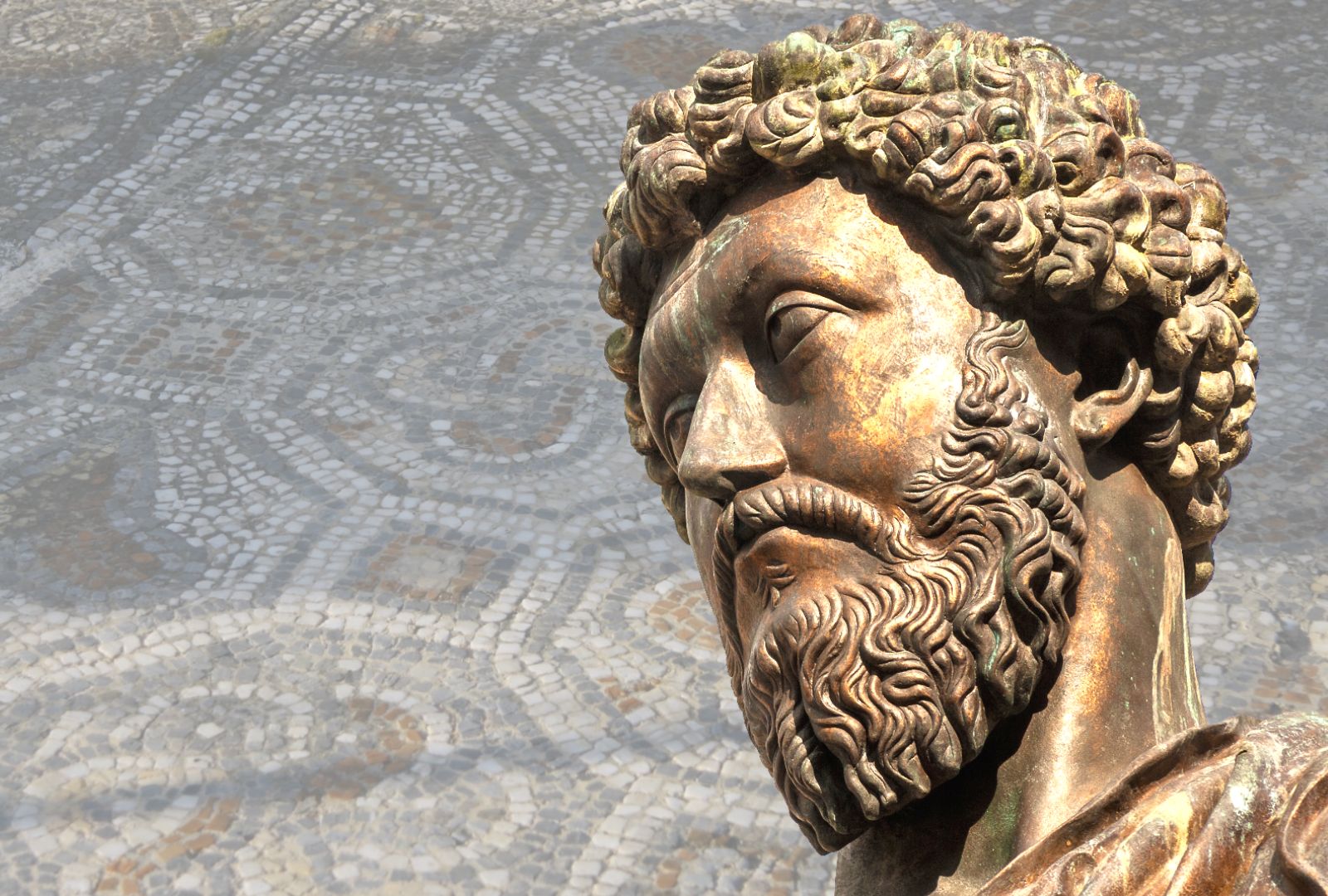The Stoics bring forth the theme of self-control on a regular basis. Epictetus, for example, spoke about abstaining from talking about vulgar things, and Marcus Aurelius points out that we should set limits to comfort and consumption. In this video, I’ll go a bit deeper into the Stoic views of mastering self-control.
I’ve already talked about the usefulness of the ability of self-control, which helps one to stay away from addictive behavior, acting on impulses when it’s better not to and to stay focused on the things that truly matter. When we make the distinction between the things in our control and not in our control, the key is strengthening the things in our control, which are, in one word: our own faculty.
A strong faculty ensures that we’re less likely to be enslaved by outside forces that are not up to us. This means that impulses, triggers, and temptations have less power over us, which strengthens our position in a universe that’s ever-changing.
This really hit me after I recently did a 72-hour water fast, during which I didn’t eat, and drank only water for 72 hours. This first day was most difficult, but the second day was surprisingly blissful and I was able to do all tasks that I’d normally do. This really changed my perception in regards to food.
I used to think that I’d faint if I didn’t eat for a day, but it turns out that I’m doing fine after a period of not eating. The lesson I got from this, is that many needs and desires come not so much from the body, but from certain ideas that are ingrained in our minds.
For me, abstaining from food for 72-hours changed my relationship with it; I’ve become less needy, knowing that I’ll be fine and that I’m perfectly able to function when I don’t eat for a while. The consequence: I worry less about food.
Statesman and Stoic philosopher Seneca reflected on the festivities going on in the city, during which the Romans feasted, got drunk and basically indulged in pleasure. He argued that it’s courageous to not participate in these festivities, but it’s even more courageous to participate but in a different way; without extravagance, thus, I assume, in a sober and modest fashion.
To detach ourselves from luxury and test the constancy of the mind, Seneca gave us the following advice:
Set aside a certain number of days, during which you shall be content with the scantiest and cheapest fare, with coarse and rough dress, saying to yourself the while: is this the condition that I feared?
Seneca, Moral Letters to Lucilius, 18
Emperor Marcus Aurelius wrote that we should set limits on leisure time, emphasizing that we aren’t made to spend our lives eating, drinking and sleeping to excess, especially when we look at the rest of the planet. I quote:
Don’t you see the plants, the birds, the ants and spiders and bees going about their individual tasks, putting the world in order, as best they can? And you’re not willing to do your job as a human being? Why aren’t you running to do what your nature demands? ‘
Marcus Aurelius, Meditations, 5-1
Although I like his analogy, I must add that some animals probably aren’t the best examples when it comes to industriousness.
However, another argument that Marcus Aurelius brings forward repeatedly is that we should live in agreement with nature. More specifically: our human nature. The guideline for this is the Stoic ethics. To put this simply: if one lives virtuously, one lives in agreement with nature and vice versa.
Courage and moderation are two of the four cardinal virtues in Stoicism. Courage is subdivided into confidence, endurance, cheerfulness, high-mindedness, and industriousness. Moderation can be subdivided into modesty, seemliness, good discipline and self-control.
Internet Encyclopedia of Philosophy, Stoic Ethics
There are many ways to train self-control. Different types of fasting are very effective, but please consult your doctor first. Another way is restricting the usage of the smartphone, social media, and the internet altogether, which, by the way, I’m doing at the moment this video is published.
Or how about this method: waiting a moment in front of your dish before you start to eat, and chewing on your food for a certain amount of times before swallowing. You’ll be amazed by how difficult this is.
Self-control makes us familiar with the hardship that many fellow humans beings go through every day, like hunger, bad luck and working insane hours with no vacation. Becoming more content with what we have and less dependent on what we think we need brings about a sense of inner peace and happiness.
As Seneca puts it:
Let us become intimate with poverty, so that Fortune may not catch us off our guard. We shall be rich with all the more comfort, if we once learn how far poverty is from being a burden.
Seneca, Moral Letters to Lucilius, 18
